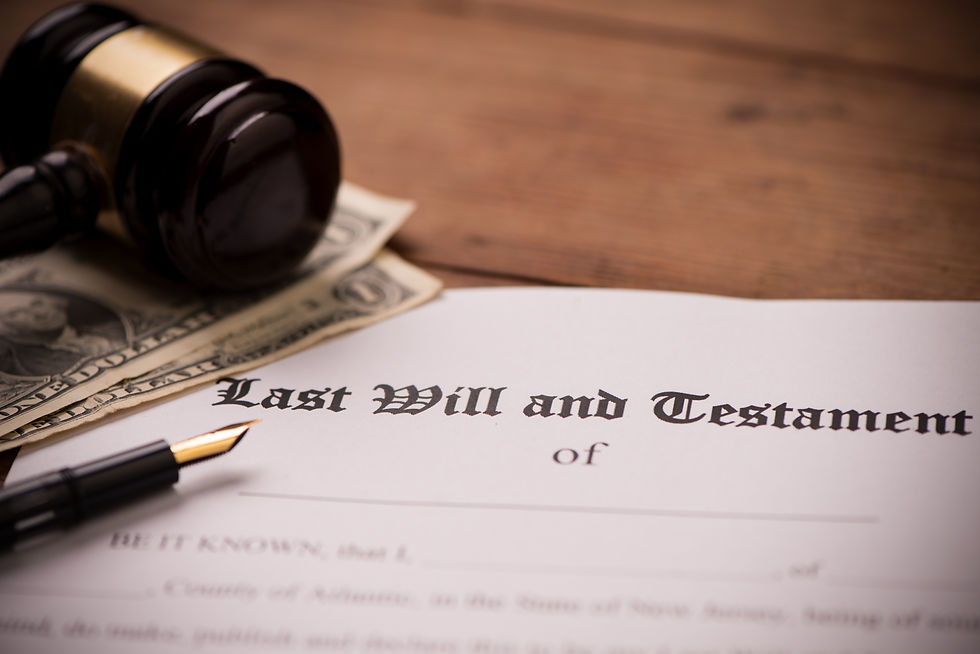Governor Hogan Authorizes Virtual Witnessing of Estate Planning Documents
- msuri1
- May 7, 2020
- 2 min read
Updated: Jul 24, 2020
By Mayhah Suri
The article is not a substitute for legal advice. See here for the site’s reposting policy.
As governments and businesses around the country adapt to the evolving global pandemic, changes are being made to some legal processes. Maryland is currently in a state of emergency, which means the government has the authority to change laws to fulfill the goal of protecting public health by reducing the spread of the virus.
With this in mind, Governor Hogan announced recently that certain legal processes requiring a witness for execution may now be conducted online. Wills, powers of attorney, and advance directives may be witnessed remotely by video conference. Based on Hogan’s executive order 20-04-10-01, a witness can now watch virtually through a video call through a process is called “remote witnessing.”
Previously, two adults (called witnesses) needed to watch these documents being signed in-person, and provide their signature, for these documents to be valid in Maryland. Witnesses are required for these documents because they take effect after the signer is deceased or otherwise incapacitated. The witnesses can testify that the signer was in the right frame of mind when executing the document.
The recent executive order outlines the requirements for remote witnessing to be valid. The witness must be on a video call, be a Maryland resident, and physically located inside the United States while witnessing the execution of the document. The supervising attorney must also take part in the online video call. Crucially, the same document must be signed by the witness(es) and the signer, either physically or electronically, such as a PDF sent through email. The attorney is responsible for certifying this copy of the document as the original, ensuring it includes all the needed signatures. Ultimately, the attorney is in charge of making sure the document meets all requirements laid out by this executive order.
This order does not affect other requirements of witnessing. The same number of witnesses is still required. This order also does not affect the validity or requirements of witnessing documents in person.
At this time, this order is set to expire when the state of emergency ends. There are some efforts underway to allow remote witnessing even after the lifting of the state of emergency, but it is unclear if these efforts will be successful.
A will, power of attorney, and advanced directives are all important parts of estate and succession planning for farm families. If you have been working on developing these documents, you can still move forward in that process during the pandemic by using remote witnessing. For explanations of these documents and how to begin the transition planning process, visit https://extension.umd.edu/agtransitions.
As the laws affecting Maryland farmers and their families change in response to the COVID-19 pandemic, ALEI specialists are working to provide resources explaining these changes. For more information, please visit http://umaglaw.org/legal-resources/covid-19-resources/.




Comments